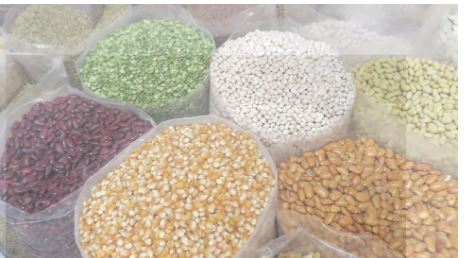Your body is in a battle zone. Constantly bombarded by inflammation, pollutants, toxins, synthetic chemicals, carcinogens, and free radicals from stress, second-hand smoke, and exercise, it’s a wonder that many of us even get out of bed in the morning. Of course, this constant struggle places the body in a catabolic state, in which muscle is broken down and fat is stored. In addition to an expanding waistline, other physical manifestations include acne, gas, bloating, fatigue, depression, and a depressed immune system.
So let’s say that you wanted to know changes you could make to help fight against this constant barrage. A perfect place to start is the type of fuel that you are constantly pumping into your body. Is it high grade, quality fuel that allows your body’s engine to run smoothly and efficiently, capable of operating at maximum capacity? Or is it low grade, synthetically derived fuel that leaves you running about about 75%, incapable of achieving what your body should “naturally” be able to achieve?
The following 7 recommend fuel changes that would eliminate synthetic materials and nasty chemicals from their “dietary detox”:
1. Use garlic in your cooking. Allicin is a natural compound found in garlic, and contains important anti-fungal properties that help to fight against the harmful bacteria that have built-up in your dietary tract from improper nutrition. Try one spoonful of fresh, minced garlic over a salad or stir-fry.

2. Avoid acidic condiments that place a high stress on your gut. This includes saeurkraut, most flavored salad dressings in the grocery store aisle, cooking vinegar and balsamic vinaigrette, Worcestershire sauce, and horseradish. Try to use as little “dress-up” on your sandwiches and salads as possible.

3. Eliminate preserved meats and pickled, dried or smoked foods, including packaged lunch meats, hot dogs, beef jerky, pickles, salami, corned beef, etc. The chemicals used to preserve these items should be considered toxic. Choose meats that are as natural and fresh as possible.

4. Avoid high consumption of coffee, tea, and wine, which contain acidic tannic compounds and often contain synthetic additives, toxins, and mold. Try to limit yourself to 1 cup a day of either coffee or tea, and choose light roasts and mild flavors.

5. Eliminate frequent consumption of dense simple sugar sources, whether natural or artificial, including fruits and fruit juices. This means that the majority of your fiber intake should come from vegetables, with only light supplementation of fruits, such as two pieces of fresh, raw fruit per day. Sugar is a breeding ground for bacteria.

6. Use grains sparingly. Choose gluten-free whole grains whenever possible, including quinoa, corn, millet, rye, and spelt. This will also assist in avoiding bacteria build-up in the intestinal tract.

7. Go organic. Whenever possible, choose organic fruits, vegetables, meats, and other products that are free of herbices, pesticides, toxic preservatives, and other chemicals.

An additional beneift of these changes is that your body gradually begins to build up natural chemicals and intestinal bacterias, leaving you with a lower risk of cancer and a super strong immune system. If you want more nutritional advice, you may want to look into a nutritional analysis from Pacific Elite Fitness. You’re required to keep a 3 day log of your exact “dietary” habits, and a diet and fitness expert then analyzes your nutrition to identify changes, substitutions, and habits that will help you adopt healthier eating patterns. This can make a huge difference in achieving your goals more efficiently.
Until next time, train smart,

